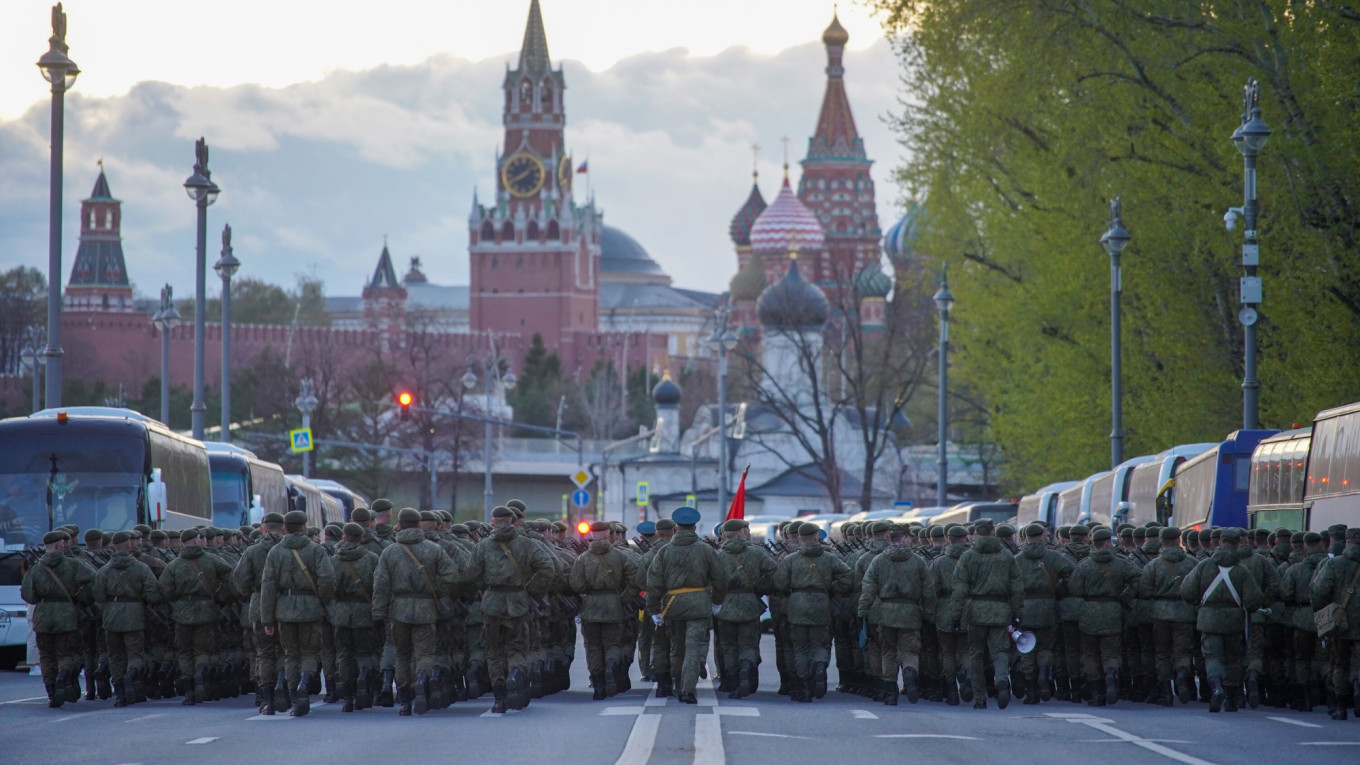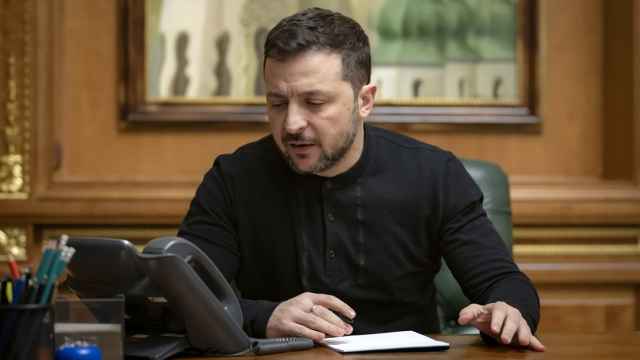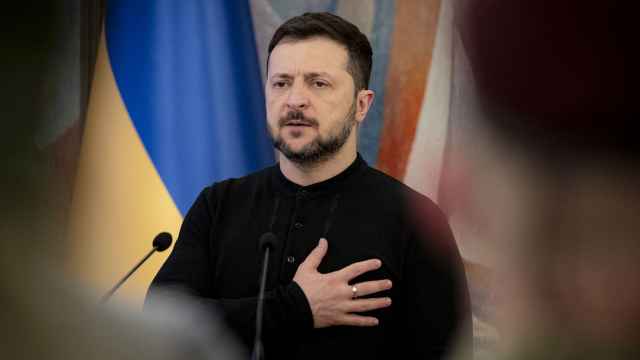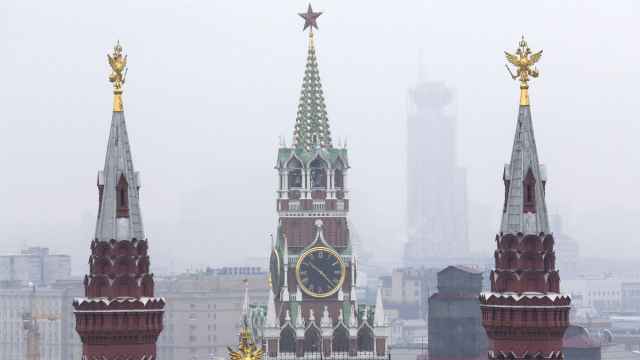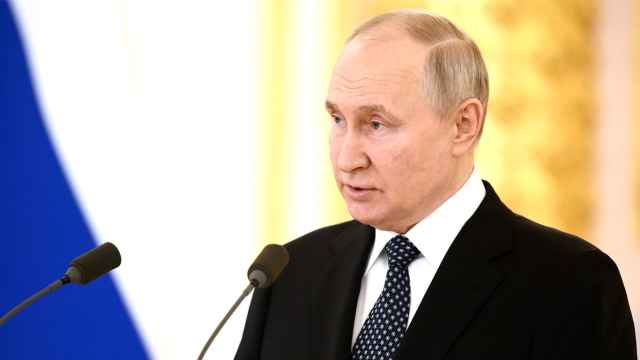The war started by Vladimir Putin has no goals that can be achieved. It's not about trying to prevent Ukraine from joining NATO — that can’t be resolved through warfare. It’s not about ensuring that people can speak Russian in the Donbas — they could do that anyway. It’s certainly not about destroying U.S. labs manufacturing infertility viruses targeting Russian women: those simply do not exist.
This war is solely about destroying Ukraine: as a state, as a culture, as a nation. Putin does not like Ukraine: it's as simple as that. He has also never tried to hide his goals: Putin has said repeatedly that Russians and Ukrainians are one, speaking the same language, and that Ukraine is the invention of Lenin.
We have grounds to believe that destroying Ukraine is just an intermediate goal to be followed by another war to subjugate the entirety of Western civilization to Putin. Though I doubt he plans to incorporate France or Spain into Russia, Putin is serious about restoring the former Warsaw Pact states to Russia's "sphere of influence" and perhaps taking Finland "back."
As Ukraine can never agree to Russia's demand that it cease to exist as a state, the war cannot be ended by signing a peace treaty.
This war can only be followed by peace if it ends with the complete military and political defeat of Putin’s Russia and the dismantling of the current regime. Putin’s state must cease to exist: not Russia, but the current state, hostile to the entire world, itself included. Any other outcome would only result in a temporary ceasefire, as once Putin’s regime will simply go on another attack as soon as it's replenished its strength.
Once Ukraine liberates all its territory — and that will happen sooner or later as it's clear that Putin’s Russia cannot win on the battlefield — no peace treaty signed with Moscow will be sufficient to deter Russia from another wave of aggression.
In this context, the proposals commonly heard in the West arguing that talks with Putin should begin as soon as Ukraine fully or partially liberates its territory, are frightening in their underestimation of the existential threat Russia poses to the entire world.
Just as it was at the end of World War II, talks are necessary and important: but only as far as they pertain to Russia's capitulation. Moreover, the man who embodies the regime cannot be allowed to sign any deal even if he wanted to — he has too much blood on his hands. In 1945, Field Marshal Wilhelm Keitel signed Germany's document of surrender to the Soviet forces in Berlin.
Who can be our Keitel today? Anyone from the leader’s close circle would do, I think. No occupation is required for that: in 1918, Germany signed all the treaties it was told to sign, even though no enemy soldiers even set foot on its territory. Putin’s allies will do it when it becomes absolutely clear that the war has been lost, that the frontline is on the verge of collapse, that they’ve run out of resources, and that economy is in freefall.
These cronies won’t do it to put an end to the bloodshed or to save the country from chaos and hunger: they will do it only for themselves. They couldn’t care less about Ukraine — or Russia for that matter — but they do care about saving their own skins, though. Each one of them requires just one thing: Western forgiveness. They need to ensure they can once again spend their billions in the kingdom of immorality and Russophobia. Otherwise, what's the point? What was their life's purpose even?
They weren’t too eager to welcome the war, although had Putin won, they would have remained his loyal servants. They certainly don’t need him if he loses, however. Of course, for that to happen they'd need to realize that remaining loyal is even more dangerous than turning on Putin.
I hope that the casting call for Keitel’s role is already well underway and that the key figures in Putin’s circle have already received or will soon receive corresponding signals from the West.
To make sure that the war is followed by peace rather than a simple ceasefire, the final peace treaty should be signed by Ukraine, Russia, and NATO — Putin keeps saying that Russia is at war with NATO — and for once he's speaking the truth.
The treaty should not only establish Ukraine’s territorial integrity and provide security guarantees but should also make sure that Russian troops withdraw from occupied territories in Georgia and Moldova as well as from Belarus. It should stipulate Russia's obligation to pay reparations and to hand over all suspected war criminals.
The most important step will be ensuring Russia's demilitarization and the relinquishing of its nuclear arsenal, without which Putin would never have started this war. At the very least, international control over Russia’s nuclear weapons must be established. If this is followed by a 21st-century Marshall Plan to rebuild the country's economy and political institutions, then the process will ultimately be met with public support.
Defeat in war can be beneficial for any nation: Russia's defeat in the Crimean War back in the mid-19th century was soon followed by the abolition of serfdom. Today, the capitulation of the regime is in the interests of Russia and its people, as the state isn’t just destroying Ukraine, it’s causing huge damage to Russia too.
If the current regime survives, Russians may never be able to extricate themselves from the horrific present they find themselves in and Russia will be doomed to poverty as an erstwhile culture that one day simply disappeared forever.
Capitulation followed by methodically dismantling the regime could give Russians a chance — a very small chance, they must accept — but nevertheless, one that they should take.
This article was originally published in Novaya Gazeta Europe.
A Message from The Moscow Times:
Dear readers,
We are facing unprecedented challenges. Russia's Prosecutor General's Office has designated The Moscow Times as an "undesirable" organization, criminalizing our work and putting our staff at risk of prosecution. This follows our earlier unjust labeling as a "foreign agent."
These actions are direct attempts to silence independent journalism in Russia. The authorities claim our work "discredits the decisions of the Russian leadership." We see things differently: we strive to provide accurate, unbiased reporting on Russia.
We, the journalists of The Moscow Times, refuse to be silenced. But to continue our work, we need your help.
Your support, no matter how small, makes a world of difference. If you can, please support us monthly starting from just $2. It's quick to set up, and every contribution makes a significant impact.
By supporting The Moscow Times, you're defending open, independent journalism in the face of repression. Thank you for standing with us.
Remind me later.



